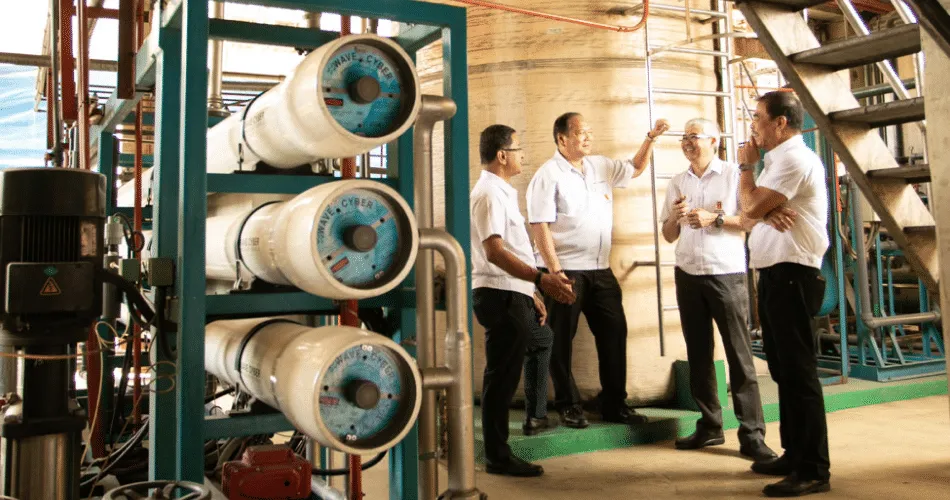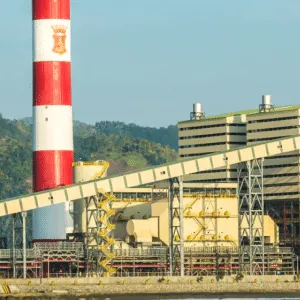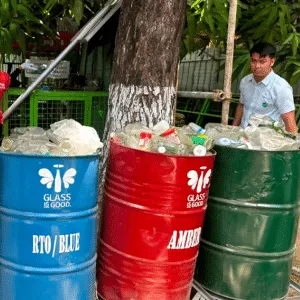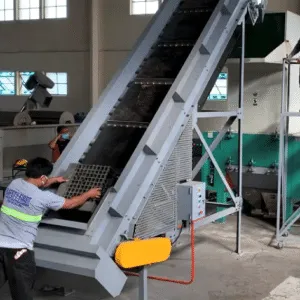From Byproduct To Benefit

As one of the largest manufacturing companies in the country, San Miguel Brewery (SMB) strives for excellence, efficiency, and sustainability. It places great emphasis on sustaining the integrity of its supply chain from sourcing to production to distribution, including managing its byproducts.
One of the ways SMB keeps its byproducts in check is by developing a system that handles them responsibly—whether for disposal, reuse, or recycling. Solid waste, particularly wastewater sludge and spent grain, are some of the major byproducts of the beverage-making process. SMB’s commitment to circularity is evident as it has successfully recycled about 23 MT of these byproducts on a daily basis across its seven breweries nationwide.
Wastewater sludge accumulates during the treatment of brewery effluents. These sedimentary materials are rich in organic matter making it suitable as sanitary landfill cover (to reduce landfillrelated emissions, fire hazard, and prevent blowing litter and dust) and as organic fertilizer. Spent grain, on the other hand, is the byproduct of raw materials that go through the brewing process. These are protein-rich materials used for hog feeds and other feed types, providing nutrients required for maintenance, growth, and reproduction.
SMB’s production facilities handle the dewatered sludge by moving it to areas that can be transformed into fertile soil, which the company donates to various organizations in need.
Polo Brewery, located in Valenzuela, has been donating its dewatered sludge to the local DENR office since 2018 to be used as effective landfill covers for specific areas in the city.
Mandaue Brewery, located in Cebu, has partnered with the Department of Agriculture and the Metropolitan Cebu Water District in diverting its dewatered sludge as fertilizer. Most of the donations are channeled to nurseries that grow seedlings for various tree-planting activities also initiated by the brewery.
Tagoloan Brewery, located in Misamis Oriental, also began donating its dewatered sludge to the Municipal Agriculture Office in 2021. The partnership has been yielding mutual benefits for both parties, albeit still in its pilot phase.
The majority of SMB’s breweries divert their spent grain directly to B-MEG under San Miguel Foods, after they go through processing in SMB’s drying plants.
B-MEG was SMC’s initial foray into the poultry and livestock industry and started from a one-ton feed mill adjacent to the brewery, growing into the marketleading feed brand in the Philippines today with close to 900 MT per hour rated capacity. It is thus fitting that, through the years, the feeds business has consistently utilized byproducts of beer production and, in doing so, absorbed a large volume of what would otherwise be waste materials and converted these into high-quality animal feeds.
Due to rising demand for beer products, which results in an increase in production volume, some of SMB’s production facilities engage local organizations to divert their oversupply of spent grain for repurposing. These partnerships not only solve the oversupply concerns of the breweries but also aid the livelihood of local business owners by providing cost-efficient solutions to their business requirements.
While Mandaue Brewery taps business partners to purchase its extra spent grain, Bacolod Brewery in Negros Occidental partners with local cattle raisers. Since 2017, Bacolod Brewery has partnered with the United Cattle Raisers Association in Negros and Visayas (UCRAIN-V) and the Negros First Ranch under the Negros Occidental Provincial Veterinary Office. The brewery provides free spent grain, which aids these organizations in providing their livestock with consistent nutritious feeds.
“The addition of spent grains in the diet of our cattle has greatly improved the quality of our daily rations at no cost,” shares UCRAIN-V President Louis Martin. “It has drastically lessened our dependence on commercial feed inputs thus lowering our total feeding cost, especially during dry season when grass growth is low. We have seen a drastic improvement in the overall condition and performance of our breeders, increases in the daily gain in weight of our fatteners and in the milk production of our milkers.
“The members of UCRAIN-V are aware that all these gains would not have happened without the spent grains from the brewery. We continue to hope and pray that this partnership will continue and grow in the future. This has also contributed to the food security program of our province.”



